Latest DePIN News

a year ago
CUDOS Partners with ParallelAI to Enhance Decentralised AI Computing
CUDOS, a prominent player in sustainable and decentralised cloud computing, has recently forged a strategic partnership with ParallelAI, a pioneer in parallel processing solutions tailored for artificial intelligence. This collaboration aims to merge CUDOS's high-performance Ada Lovelace and Ampere GPUs with ParallelAI's Parahub GPU Middleware, thereby creating a decentralised AI compute environment that promises exceptional efficiency and scalability. By leveraging CUDOS's decentralised infrastructure, ParallelAI's $PAI ecosystem will gain access to robust and cost-effective GPU resources, enabling accelerated AI workloads that allow developers and enterprises to optimize GPU utilization while minimizing operational expenses.
The timing of this partnership is particularly significant as CUDOS continues to build on its recent token merger with ASI Alliance members, which include notable entities like Fetch.ai, SingularityNET, and Ocean Protocol. This strategic alignment further cements CUDOS's position within a globally recognized decentralised AI network. ParallelAI's upcoming launches of the Parilix Programming Language and PACT Automated Code Transformer are set to complement this partnership, simplifying GPU programming and enhancing the accessibility of parallel processing for developers, thus fostering innovation in the AI sector.
The collaboration between CUDOS and ParallelAI signifies a mutual dedication to promoting sustainable and accessible AI computing solutions. As the integration of their technologies advances, this partnership is poised to usher in a new era of decentralised, high-performance computing, ultimately redefining the landscape of artificial intelligence for developers and enterprises alike. With ParallelAI's ability to enhance compute efficiency by significantly reducing computation times, the synergy between these two companies is expected to empower a wide array of AI-driven projects and large-scale data analyses.
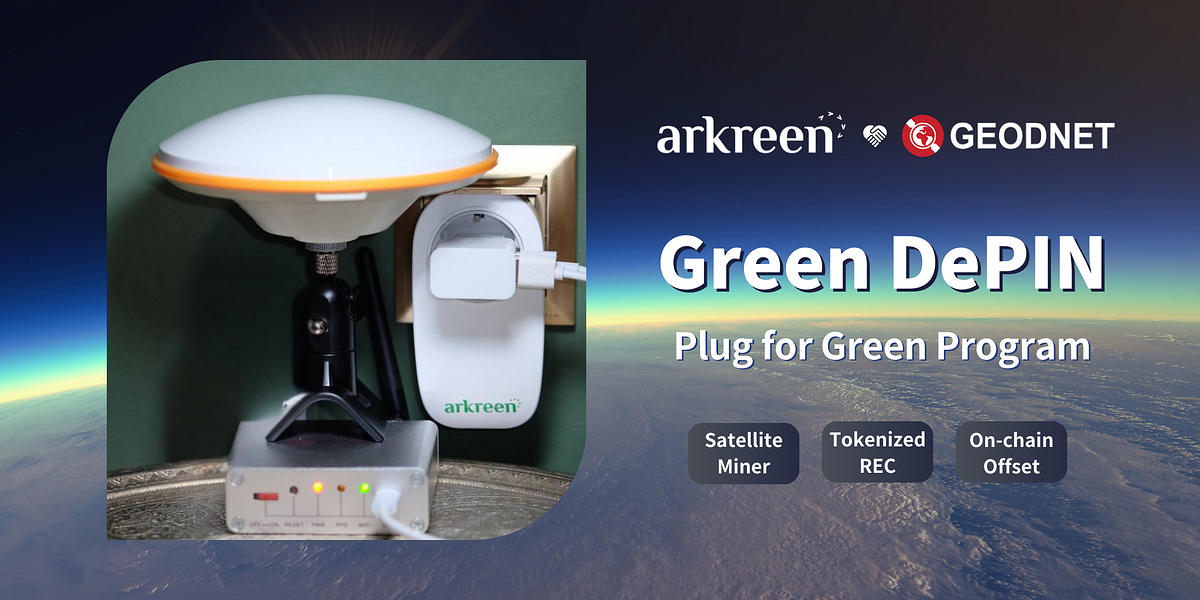
a year ago
Arkreen and GEODNET Partner for Sustainable Green DePIN Initiative
Arkreen, a Web3-powered infrastructure company focused on renewable energy and carbon reduction, has announced a strategic partnership with GEODNET, a leader in Earth observation and operator of the largest Real-Time Kinematics (RTK) network globally. This collaboration falls under the "Plug for Green Program" (PGP) and aims to enhance carbon neutrality within Decentralized Physical Infrastructure Networks (DePIN). Together, they are paving the way for a sustainable future by leveraging innovative technologies to address energy consumption and carbon emissions in the mining sector.
The partnership introduces a novel approach to monitor energy consumption and offset carbon emissions through the integration of GEODNET's satellite miners and Arkreen's Smart Plugs. By utilizing Arkreen's tokenized Renewable Energy Certificates (RECs), users can now directly offset their carbon emissions from brown energy consumption on-chain. This initiative not only promotes a greener mining process but also unlocks new opportunities for participants to engage in environmentally responsible practices while benefiting from dual-mining rewards.
As a key player in global Earth observation, GEODNET enhances the capabilities of autonomous systems with its advanced RTK network, which offers significant improvements in positional accuracy. Through the Plug for Green Program, Arkreen equips GEODNET with real-time energy monitoring and innovative green incentives, encouraging the community to adopt carbon-neutral practices. This partnership exemplifies the potential of Green DePIN initiatives, empowering participants to contribute to global sustainability efforts while reaping the rewards of eco-friendly mining.
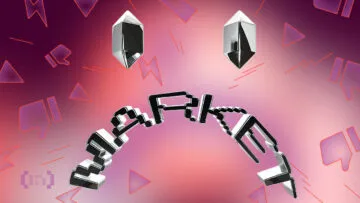
a year ago
Top Trending Cryptos: Drift, Notcoin, and Grass Make Waves
In the ever-evolving landscape of cryptocurrencies, today's top trending altcoins include Drift (DRIFT), Notcoin (NOT), and Grass (GRASS). Drift, the governance token of the Solana-based decentralized exchange Drift Protocol, is gaining traction following its recent listing on the South Korean exchange Upbit. The listing, which pairs DRIFT with Bitcoin (BTC), USDT, and the Korean Won (KRW), has led to a staggering 500% surge in trading volume and an 88% increase in price, currently sitting at $0.95. However, technical indicators suggest that DRIFT may be overbought, with a Relative Strength Index (RSI) reading of 77.05, indicating potential for a price retracement to $0.70 unless buying pressure continues to push it higher.
On the other hand, Notcoin (NOT) has not fared as well, experiencing a 16.69% decline in the last 24 hours, bringing its price down to $0.0063. Despite this downturn, Notcoin has formed a falling wedge pattern on the daily chart, which is typically a bullish reversal signal. If the price can hold above $0.0060, there is potential for a rebound towards $0.013. However, a drop below this level could see it fall further to $0.0056, indicating a precarious position for investors.
Grass (GRASS) continues to impress, having appeared on the trending list consistently over the past week. The token, associated with the Decentralized Physical Infrastructure Network (DePIN) project, has surged by 31.81% in the last 24 hours, making it one of the top performers among the top 100 cryptocurrencies. With a positive Moving Average Convergence Divergence (MACD) reading, there is optimism that GRASS could climb above $3.33. However, profit-taking by holders could lead to a decline below $2.50, highlighting the volatility inherent in the crypto market.

a year ago
Rollblock ($RBLK) Emerges as a Promising Investment Amid Crypto Volatility
The cryptocurrency market has recently experienced significant volatility, particularly with assets like Pepe and Bittensor showing dramatic price fluctuations. Investors are increasingly turning their attention to Rollblock ($RBLK), a Web3 casino platform that promises more stable and bullish price action. With the potential for remarkable gains, many believe that Rollblock could achieve 100x returns in this market cycle, making it an attractive opportunity for crypto enthusiasts.
Pepe ($PEPE) has made headlines with a notable bounce, increasing its value by 12.2% to reach $0.0000092. This surge has been accompanied by a substantial rise in trading volume, with over 1.3 billion Pepe tokens exchanged in just 24 hours—a staggering increase of 123%. Notably, a whale transaction of over $5 million worth of Pepe has sparked interest, suggesting that if this momentum continues, Pepe could approach its yearly highs soon. Similarly, Bittensor ($TAO) has experienced an 18% increase, recovering from a dip and solidifying its position within the top 25 cryptocurrencies by market cap.
Rollblock ($RBLK) is making waves as it continues to achieve all-time highs, recently hitting $0.033. This early-stage casino startup has attracted 20,000 investors who have collectively contributed $4.9 million, drawn by the promise of trust and transparency in the $450 billion online gaming industry. With all transactions recorded on the Ethereum blockchain, Rollblock ensures no manipulation of bets and instant verification. The platform currently offers over 7,000 casino games, with payouts made in the native RBLK token. The tokenomics of RBLK, including buybacks and staking rewards, position it as a potential blue-chip asset in the crypto space, making it a compelling option for investors looking to capitalize on the ongoing presale.
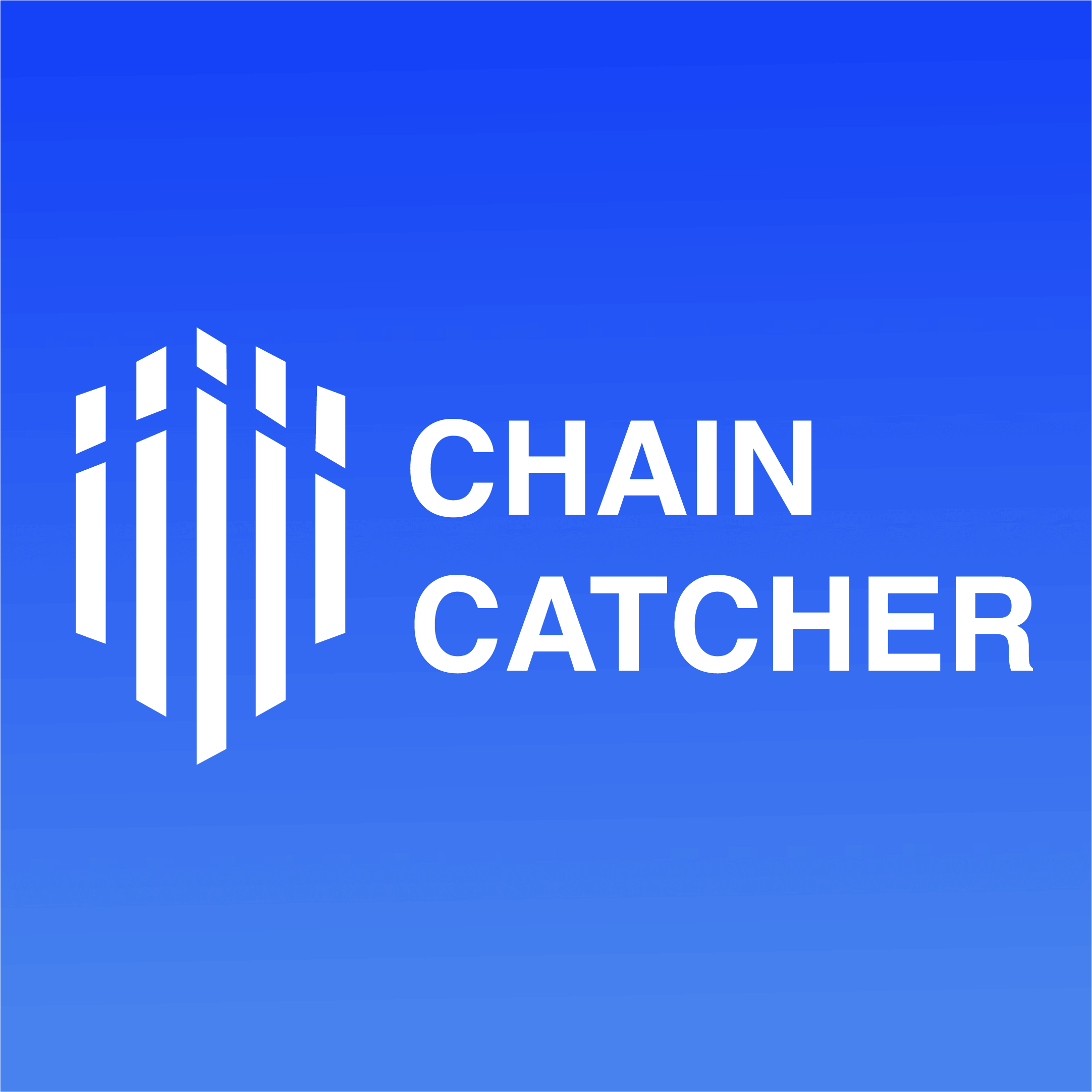
a year ago
Starpower Launches Airdrop Event After Graduating from Alliance's 13th Phase
This month, the decentralized energy network Starpower has successfully graduated from Alliance's 13th phase and has launched an exciting airdrop event. The initiative has already attracted over 200,000 newly registered users, reinforcing Starpower's status as the leading energy decentralized physical infrastructure network (DePIN) in terms of user base. Looking ahead, the project has ambitious plans to surpass 1 million users by 2024 and aims to outpace Tesla's device activation numbers within the next five years, leveraging its innovative DePIN model.
According to insights from the Web3 asset data platform RootData, Starpower operates as an open protocol for decentralized energy networks. The recently initiated airdrop event is set to run until the mainnet launch, during which a total of 30 million tokens will be distributed as rewards. These rewards will be allocated to users who purchase devices, activate NFTs, and engage actively within the community. This strategic move not only incentivizes user participation but also aims to build a robust ecosystem around decentralized energy solutions.
In light of these developments, ChainCatcher emphasizes the importance of approaching blockchain technology with a rational mindset. Users are encouraged to enhance their risk awareness and exercise caution regarding various virtual token issuances and speculative activities. It is crucial to note that all content provided by ChainCatcher serves as market information or opinions from related parties and should not be interpreted as investment advice. For any sensitive information encountered, users are urged to report it for prompt handling.
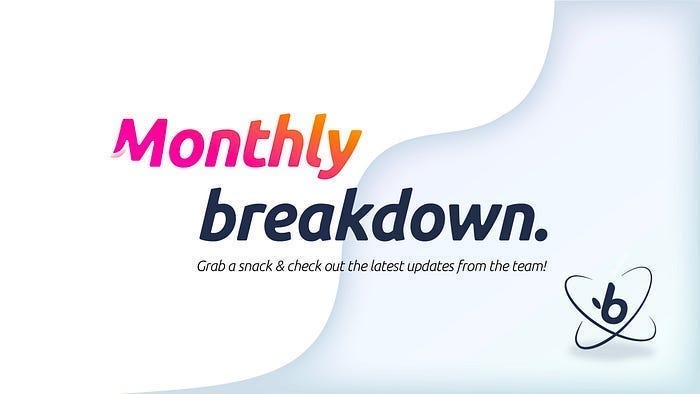
a year ago
Bistroo's October 2024 Update: Sales Growth and New Features
In October 2024, Bistroo has made remarkable progress in enhancing its sales pipeline and marketing efforts, as detailed in the latest update for token holders and the broader community. The company launched several projects aimed at improving the sales funnel, resulting in a staggering 234% year-on-year increase in first-time users, with 7,224 new orders placed. Additionally, 3,186 new user accounts were created, marking a 199% increase compared to the same month last year. The number of new merchants going live also saw a significant rise, with 39 new merchants compared to 25 in October 2023, alongside 75 new appointments scheduled, reflecting the company's commitment to expanding its reach as the holiday season approaches.
On the marketing front, Bistroo has focused on growth through partnerships and community engagement, celebrating its 5th anniversary in September. The company has made significant strides in search engine optimization (SEO) efforts, particularly with its Pages product, which allows merchants to create whitelabel websites. This initiative aims to drive more search traffic to these pages, enhancing visibility and engagement. Furthermore, Bistroo has improved its Google My Business support, providing merchants with an additional channel to connect with their audience directly. Two strategic crypto partnerships are also in the pipeline, set to be announced soon.
In terms of development, Bistroo has rolled out multiple updates to enhance user experience. A notable feature introduced is the 'as soon as possible' expiration setting for orders, which automatically closes unconfirmed orders after two hours. This update aims to streamline operations for merchants and improve order management. Other enhancements include adjustments to notification settings, quality of life improvements for security, and bug fixes for the revenue system. With these developments, Bistroo continues to empower restaurants through its SaaS infrastructure, leveraging the BIST Token to facilitate lower fees and instant payouts for online orders.

a year ago
Ideogram 2.0: A Game Changer in AI Image Generation
In the rapidly evolving landscape of AI image generation, Ideogram 2.0 emerges as a standout platform, offering an impressive blend of photorealism and user-friendly features. This latest version has been designed with accessibility in mind, allowing users of all skill levels to create stunning images without the need for coding expertise. Its free-to-try model invites experimentation, while the introduction of API access in beta opens new avenues for developers looking to integrate advanced AI capabilities into their projects. The standout feature, however, is its innovative "magic prompts," which provide AI-generated suggestions that enhance the creative process, making it a compelling choice for both casual users and professionals alike.
My initial experience with Ideogram 2.0 was nothing short of impressive. Using a simple prompt for a still-life image, I received four beautifully rendered images that showcased the platform's ability to cater to specific visual needs. The addition of the "magic prompts" feature not only enriched the results but also demonstrated the platform's versatility. Moreover, Ideogram 2.0 excels in creating memes and deep fakes, a unique aspect that sets it apart from competitors. While the results can be strikingly realistic, users are advised to approach this feature with caution, considering the ethical implications of generating such content.
Beyond its core functionalities, Ideogram 2.0 addresses common issues faced by other AI generators, such as poor text quality and lack of color control. With accurate fonts and the ability to adhere to specific color palettes, it becomes an invaluable tool for designers and marketers. The premium version also offers AI upscaling, enhancing image resolution for professional use. While the API requires a minimum deposit, the overall value provided by Ideogram 2.0 makes it a worthy investment for those serious about leveraging AI in their visual projects. In a crowded market, Ideogram 2.0 is undoubtedly a must-try for anyone interested in AI image generation.

a year ago
Nicholas Zaldastani Discusses Blockchain's Impact on Data Ownership and Security
In a recent episode of Hashing It Out, Nicholas Zaldastani, the chairman and co-founder of CESS, discussed the transformative power of blockchain technology in the realm of data ownership and security. Reflecting on his tenure at Oracle in the late 1980s, Zaldastani noted the exponential growth in the value of data, which has become a cornerstone of the global economy. As digital information increasingly dictates various aspects of life, the urgency surrounding data privacy and security has intensified, prompting discussions on decentralized storage solutions that empower users to retain control over their information.
Central to Zaldastani's insights is the concept of data sovereignty, which advocates for individuals' rights to manage their own data. He criticized traditional centralized storage systems for their vulnerabilities, often exposing data to unauthorized access and misuse. In contrast, decentralized networks like CESS offer innovative solutions by distributing data across multiple nodes, thereby enhancing security. Zaldastani explained that by breaking data into encrypted segments and replicating them across various locations, the risk of data breaches is significantly reduced, as accessing a single node yields only a fraction of the information.
The implications of decentralized data storage extend beyond individual privacy, influencing sectors such as non-fungible tokens (NFTs) and artificial intelligence (AI). As blockchain technology continues to evolve, it holds the potential to redefine how data is managed and secured, ensuring that users maintain ownership and control. The podcast episode serves as a vital resource for understanding these emerging trends and the future of data in a digital-first world.
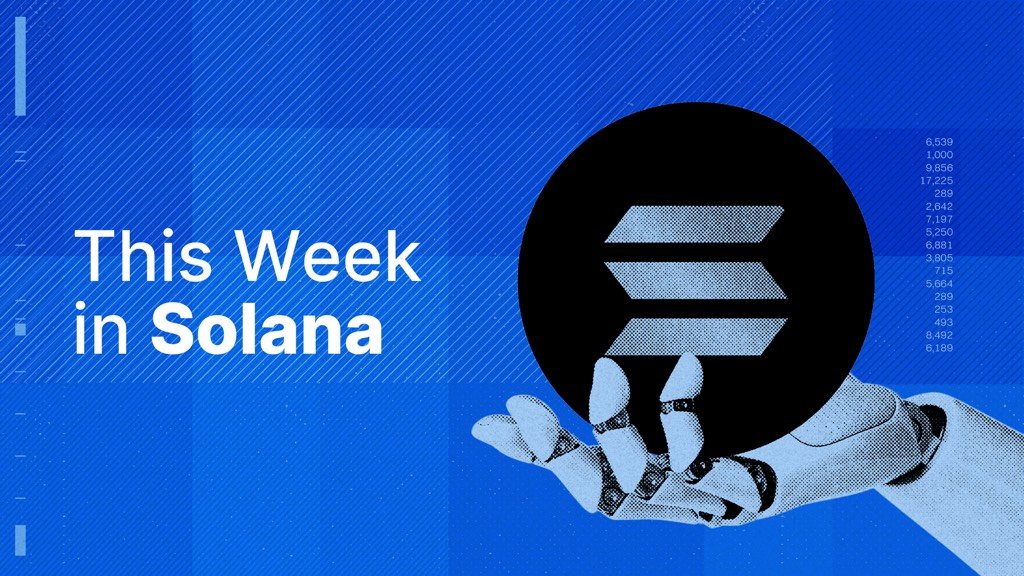
a year ago
Solana Surges Amid U.S. Election Optimism and Institutional Confidence
In a week marked by political tension surrounding the U.S. elections, Solana experienced a notable downturn, losing approximately 14% from October 31 to November 5. However, the mood shifted dramatically on election day when Solana's native token, SOL, surged by over 15%, reaching $187. This rebound was driven by a significant increase in trading volume, which more than doubled to over $6 billion. The optimism surrounding Donald Trump's election win, who has been a vocal supporter of cryptocurrency, is expected to lead to more favorable regulations in the U.S., alleviating concerns about Solana's classification as a security.
Despite a generally bearish week for the cryptocurrency market, Solana managed to maintain its upward momentum, outperforming rivals like Ethereum and BNB. The Solana ecosystem showcased impressive metrics, with a total value locked (TVL) in DeFi reaching $6.326 billion, giving it a 7.09% share of the DeFi landscape. Additionally, Solana's dominance in the NFT space is evident, commanding over 40% of daily users and significantly outpacing competitors. Institutional confidence is also on the rise, with DApp investments hitting $173 million in Q3, the highest since 2022.
As the race heats up for the first U.S. Solana ETF approval, firms like Canary Capital, VanEck, and 21Shares are vying to launch products that track SOL prices. Solana has recently flipped BNB to become the fourth-largest cryptocurrency by market capitalization, reflecting a wave of market optimism. Furthermore, Solana's DEX trading volume reached 27% market share in October, solidifying its position as a leading player in decentralized trading. With a loyal developer community and high transaction counts, Solana continues to be a major force in the blockchain ecosystem.

a year ago
Anyone Protocol's October Development Review: Testnet Launch and Hardware Innovations
October marked a significant milestone for the Anyone Protocol with the launch of the Incentivized Testnet. This release not only introduced a more user-friendly dashboard accessible via dashboard.anyone.io but also included a testnet faucet. The development team addressed several bugs related to distribution logic and hardware validation shortly after the launch. Notably, the protocol is undergoing a major rewrite from Smartweave to AO, a Hyper Parallel Computer built on Arweave. This transition introduces a new programming language, Lua, and incorporates innovative tokenomics features, enhancing the protocol's efficiency and decentralization by allowing client signing through locally running AO processes.
In the hardware division, October proved to be productive as well, focusing on simplifying user experience and enhancing routing features. A new mode designed for non-technical users allows for rapid setup of secure hotspots through the Anyone Network, eliminating the need for manual relay configurations. Improvements in Wi-Fi usage, including standardization to WPA2 and automatic SSID scanning, have been implemented. Additionally, bug fixes addressing dynamic IP issues and updates to relay paths are set to be released, further streamlining operations for relay operators. The collaboration with MicroChip to enhance the ATEC encryption chip signifies a commitment to security and innovation within the hardware framework.
On the network and applications front, significant updates have been integrated into the Anyone client, including patches for Android JNI changes and enhancements to the deployment processes. The Anyone NPM package has evolved into a comprehensive library, providing developers with advanced circuit configuration capabilities. Core contributor Benjamin Erhart continues to develop libraries for both Android and iOS, with a new Anyone Desktop repository gaining traction on GitHub. As always, the protocol's code remains open-source, inviting community engagement and collaboration.
Signup for latest DePIN news and updates